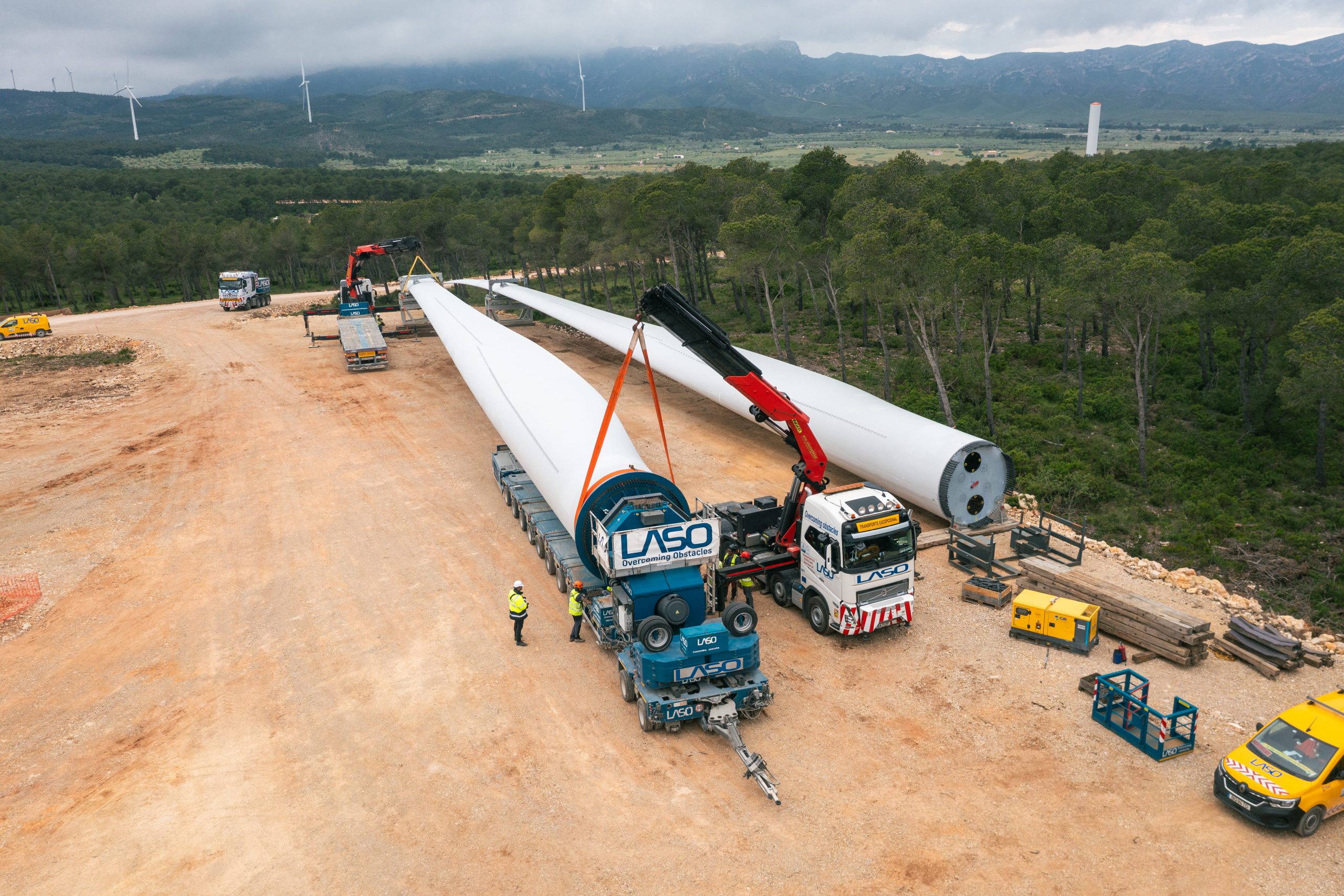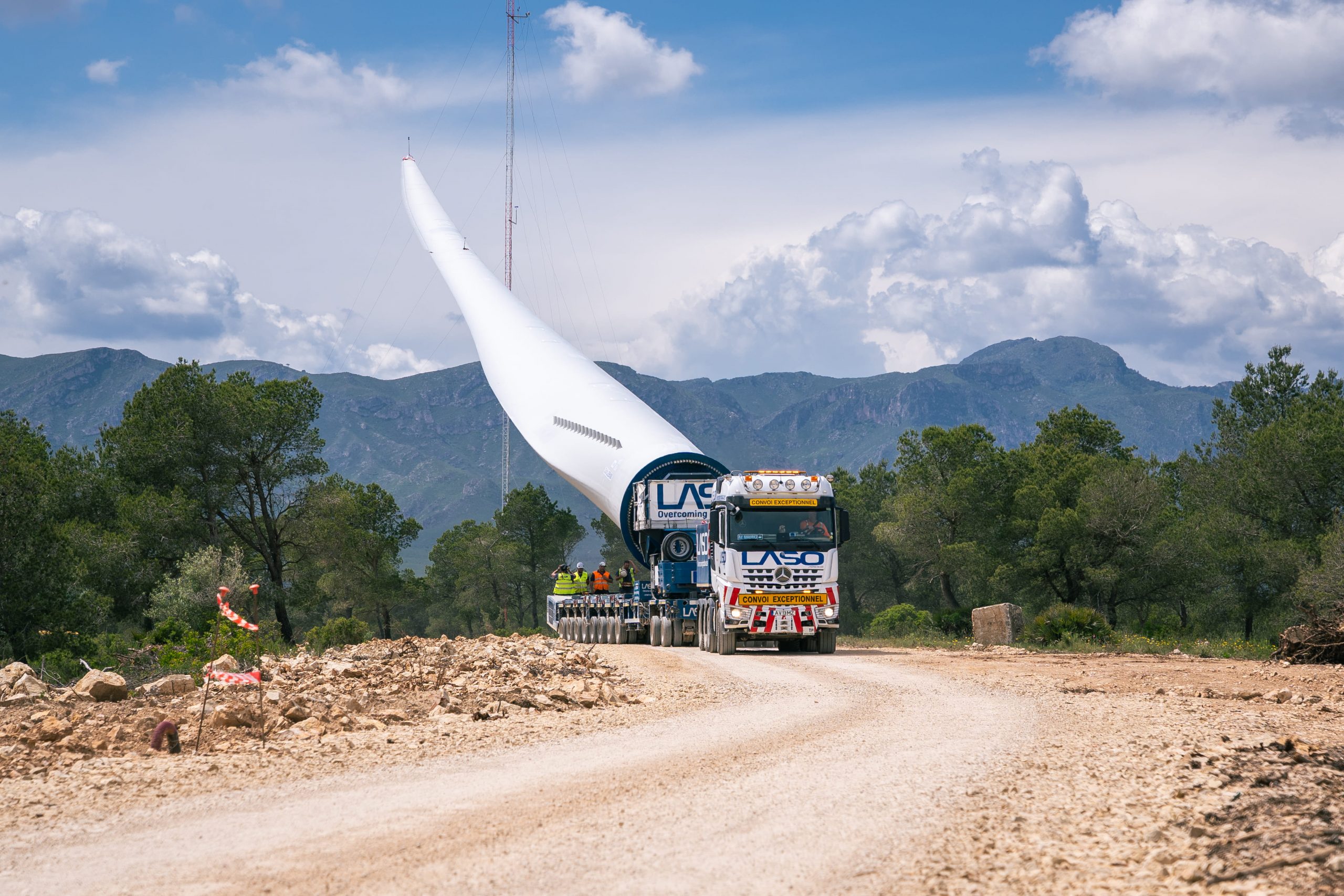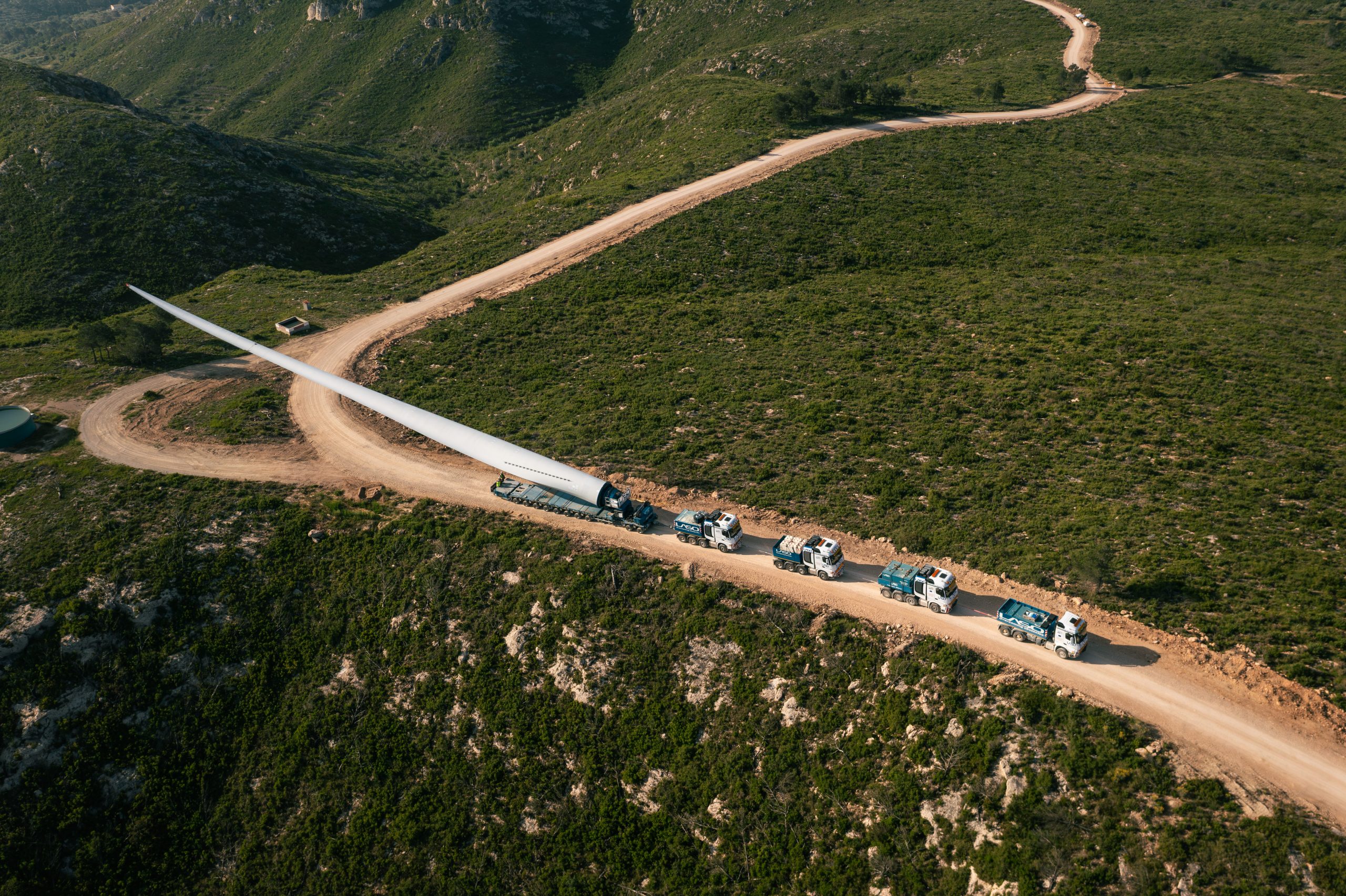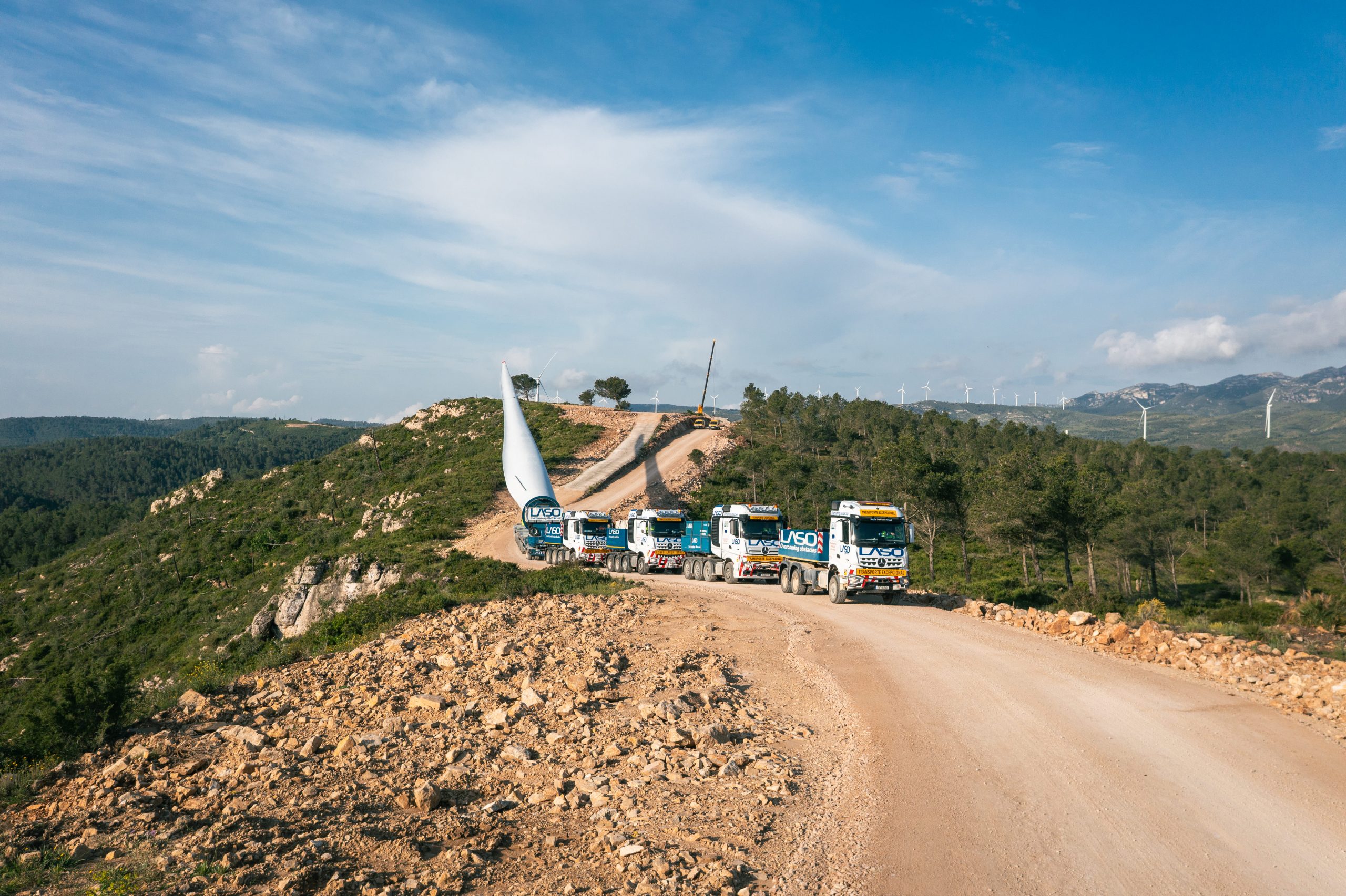LASO successfully transported another highly complex operation, this time to the new ‘Les Colladetes’ wind farm in Tarragona, Spain. The project lasted seven weeks and involved the transport of eight 121HH wind turbines and their main components, in a multi-origin and technically demanding operation.
This logistical operation is highly complex, both technically and operationally. The project involved the transport of components from three different origins. The metal towers came from Madrigueras, the main technical elements, such as the nacelle, hub and drive train, came from the Port of Castellón, and the wind blades came directly from LM Windpower, also in Castellón.
The size and specificity of each component, especially the blades of over 77 metres in length and parts weighing over 85 tonnes, required a combination of highly specialised transportation equipment. In addition to the modular semi-trailers and traction trucks, equipment such as the Tower Adapter, the Crane Truck and the Blade Lifter were used, which allowed them to pass through the critical areas of the route. In some cases, transporting the shovels required the use of three traction trucks per unit, demonstrating the high level of demand of the route.
With a total of 97 scheduled transports, the project mobilised around 70 professionals, including drivers, pilots, crane drivers, operatives, engineers and commercial teams. The diversity of loads and routes, combined with the need to operate simultaneously at different points of origin, required continuous coordination between all those involved.
To guarantee the safety and viability of the operation, a detailed route survey was carried out to define the route to be travelled. This study also involved the removal of street furniture along the route, such as lamp-posts, road signs and street furniture.
“The success of this operation is the result of coordinated work between the different LASO teams, rigorous technical planning and the experience gained from similar projects. Even so, the diversity of origins, the type of goods and the rugged terrain made this project particularly challenging,” says one of the LASO operational managers involved in the project.
With this operation due to be completed by the end of May, LASO is strengthening its position as one of the main European operators in the transport of renewable energy components. More than just a logistics project, this is another active contribution to the ongoing energy transition and the sustainable future of the energy sector.




